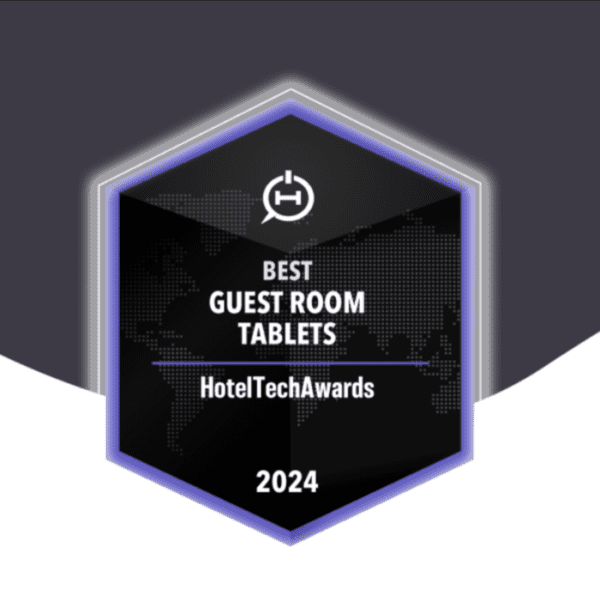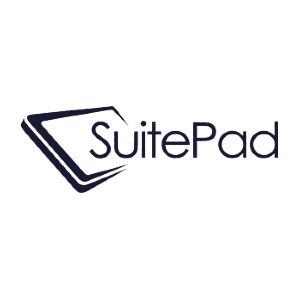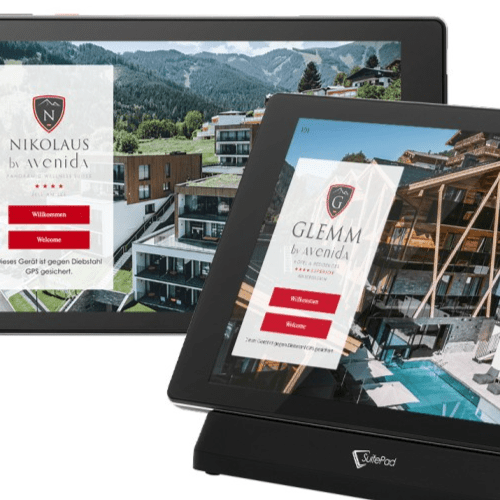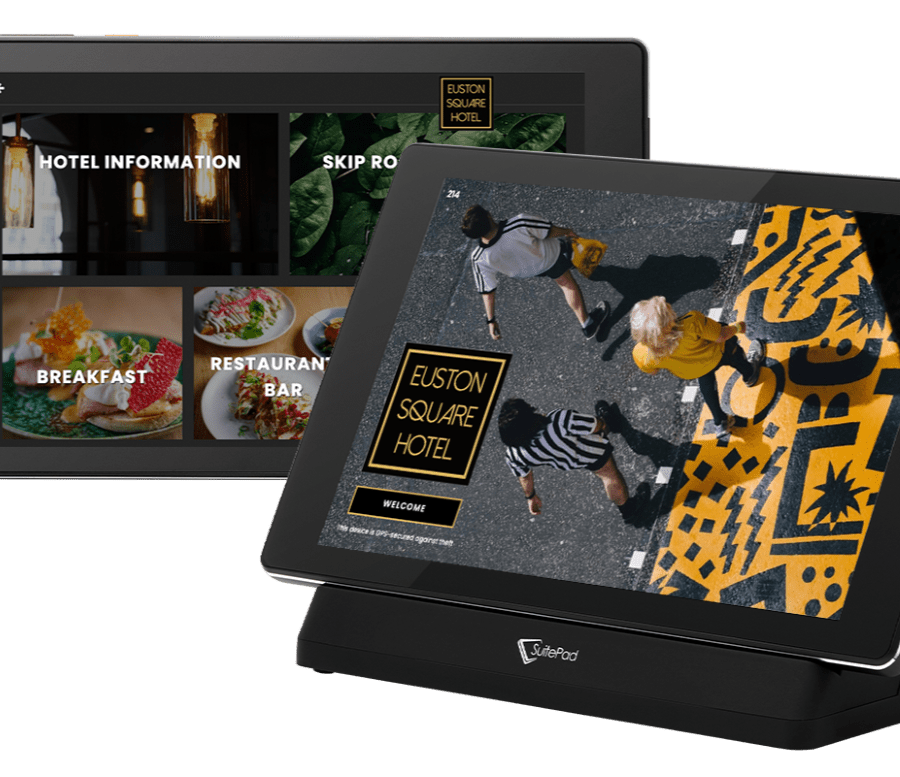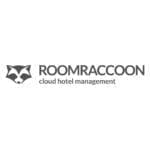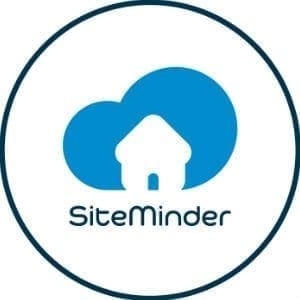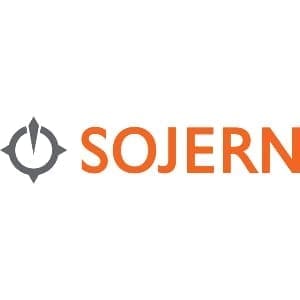The global pandemic has sent shockwaves through the hotel industry. If you’re reading this, it’s highly likely that you’re a hotelier or work in the hotel industry, meaning you’re well aware of the toll this airborne disease has had for everyone associated with the field of hospitality.
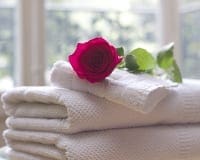 But there may be light at the end of the tunnel. While coronavirus is still an ever-present part of our everyday lives, things are seemingly under control in parts of the US, Europe, and Asia, which means it’s time for hoteliers to consider how to run their hotel in a world with COVID-19. For hoteliers, the “new normal” will take some time to get used to—it will involve a huge overhaul of hotel operations and processes that will take time for staff to adjust to. As we make the first tentative steps to return to some kind of normality, what measures can we put in place to reduce the risk of spreading viruses in hotels? And how can we ensure guests have confidence that we are minimizing the spread of airborne diseases?
But there may be light at the end of the tunnel. While coronavirus is still an ever-present part of our everyday lives, things are seemingly under control in parts of the US, Europe, and Asia, which means it’s time for hoteliers to consider how to run their hotel in a world with COVID-19. For hoteliers, the “new normal” will take some time to get used to—it will involve a huge overhaul of hotel operations and processes that will take time for staff to adjust to. As we make the first tentative steps to return to some kind of normality, what measures can we put in place to reduce the risk of spreading viruses in hotels? And how can we ensure guests have confidence that we are minimizing the spread of airborne diseases?
You can find more on the answers to these questions in our latest blog post: Using In-room Tablets to Overcome the Four Biggest Obstacles for Hoteliers During the Coronavirus Era
Addressing these questions is key to keeping guests safe while also giving them the confidence to return to hotels. In this article—the second in a series of four articles on opening hotels safely—we want to show you how digital technology can prevent your hotel staff from spreading viruses in hotels and give your guests the confidence to return.
Housekeeping staff are perfect for spreading viruses
How do viruses spread? The first and foremost way is through transmission from other people. According to Livescience.com, contact transmission is the most common form of transmission for COVID-19. Droplets that leave the human body through coughing, sneezing, or even just breathing, can be easily transferred from one person to another through the air or via high-touch surfaces in the hotel room.
If a single member of your housekeeping team is infected, it’s likely that they could spread the virus throughout the hotel in a matter of hours, leaving droplets on surfaces in a number of rooms for guests to then unwittingly ingest and become sick. Of course, your housekeeping team will need to take extra care, including room cleaning PPT measures—but this may not be enough. There is always a limited number of respiratory droplets that escape through the sides of masks, get rubbed onto gloves, or are present on housekeeping staff’s clothing that could potentially contaminate a number of rooms.
Even if housekeeping staff are ordered to take extra time cleaning rooms with disinfectant, they may still leave respiratory droplets in the air that then settle on surfaces after an hour or so. An article in the New York Times mentioned that scientists found that droplets in lab conditions stayed suspended in air for about 3 hours. While it’s unlikely they would last this long in real life conditions, it’s predicted that they may last for upto an hour in undisturbed air. These can then be breathed in by guests who enter the room soon after it’s been cleaned.
Transmitting virus particles is a particularly large risk when staff are cleaning rooms while guests are mid-stay rather than in between stays. When staff have more time to do a real deep clean, they can then leave the room undisturbed for a longer period of time which will give the viruses a longer period outside of the body and so the viral load on surfaces will diminish. Rooms that are cleaned mid-stay may be reoccupied within a matter of minutes, meaning a fresh viral load can be picked up before there is time for the viruses to die on surfaces.
Allowing guests to take control of their housekeeping schedule
The most simple and effective solution to preventing housekeeping staff from spreading the virus in your hotel is to restrict the number of times they clean the rooms. This, of course, would mean guests’ rooms are more likely to be left untidy while they’re staying, but most guests will understand that this is simply part of living in a world with coronavirus. For those guests that aren’t too worried about catching the virus and would like to receive the great hotel cleaning service that they’re used to, they can still have the option to choose this.
This system wouldn’t stop housekeeping staff from cleaning in between guest stays—that would be unhygienic and poor service. But, offering guests the chance to cancel their room cleaning, or even making it obligatory for them to opt-in to room cleaning gives them control of how much contact they have with hotel staff. For guests that are high-risk or anxious about spreading or contracting the disease, this option could be the deal-breaker as to whether they return to staying at hotels or not.
To provide guests with the great service they’ve become accustomed to at your hotel, you could also provide them with a number of options. For example, you could offer them to skip room cleaning but still receive a clean change of towels—staff could hang a linen bag on their door which guests would fill with the old towels, and then when staff collect this, they could hang a bag with fresh towels in its place. This would enable guests to still experience at least some of the services that they have become used to without the need for staff to set foot in their room.
Using digital solutions to implement your new housekeeping options
You may be thinking, “so, where do digital solutions come into all of this?” Digital solutions such as in-room tablets or hotel apps are the perfect way to get guests to take control of their hotel room’s room cleaning schedule. Unlike paper-based in-room collateral, in-room tablets and other devices can issue push notifications to remind guests that they need to make a choice about whether or not they want housekeeping to enter their room the following day. You could also ask them whether they’d still like fresh towels, and you’ll be notified of their decision instantly.
In addition, in-room tablets are much more hygienic than paper-based in-room collateral—a point we make in the previous blog in this series titled Opening Hotels Safely: Using digital technology to minimize the spread of bacteria and viruses in hotel rooms. Digital solutions, therefore, keeps guests safe while aiding hotel staff in the organization of the hotel’s housekeeping rota.
Here at SuitePad, we already have this function set up on our in-room tablets. Our Green Option feature allows guests to forgo room cleaning to reduce the carbon footprint of their stay—leading to cost-savings for the hotel and a better experience for guests. We have now altered this feature to ensure guests have control of their housekeeping schedule during the coronavirus era. If you’d like to see how this could work in your hotel, contact us and book a free online or on-site demonstration.
Restoring faith in hotels for guests through digital technology
It’s easy to reassure guests that your hotel is taking the global pandemic seriously, but actions always speak louder than words! Offering guests the opportunity to take control of their in-room cleaning schedule will do wonders for your hotel’s reputation at a time when a positive reputation could be the difference between success or failure.
Here at SuitePad, we’ll be demonstrating how hoteliers can operate their hotel in a way that gives guests the confidence to return in a free online webinar taking place on Thursday 18th June. Sign up to find out how digital technology can help you and your hotel in a world with COVID-19.
About Suitepad
SuitePad is the market leader in providing in-room tablet solutions that create added value for guests and hotels alike across central Europe. We are propelled by the vision to help hotels to shape the guest room of the future: guest directory, telephone, remote control, newspapers and room service menu are all united on a single device – the SuitePad. We are working with some of the most renowned hotel chains in more than 16 countries and were awarded various industry awards. According to our philosophy of creating an open and easy-to-use platform in the guest room, we developed SuitePad to offer hotel internal as well as external services, as desired by the hotel. Guests may not only browse hotel information, order room service or place reservation for hotel outlets but may also access entertainment offers like newspapers, movies, and social media.


